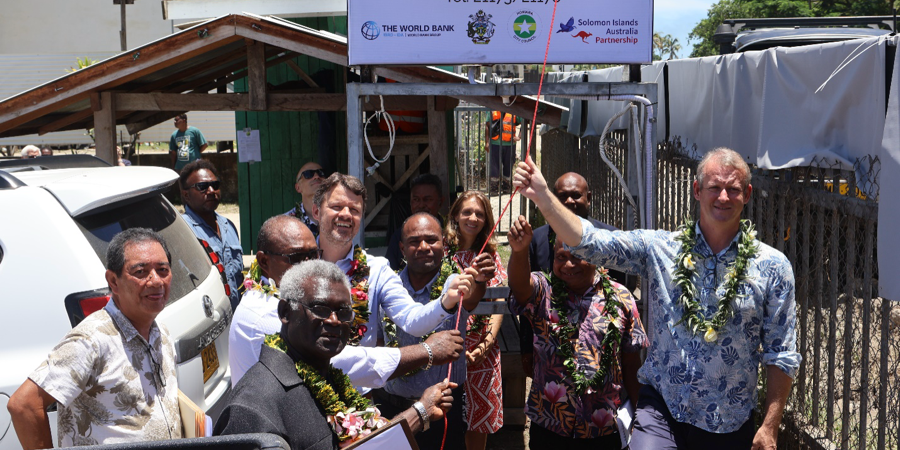The image of Honiara City is set to undergo a significant transformation under the four components of the Community Access and Urban Services Enhancement (CAUSE) project, Phase II.
The World Bank, Australia, and the Solomon Islands Government officially launched the second phase of the project at Don Bosco, east of Honiara on Friday.
The project consists of four key components:
- Resilient Township Infrastructure – Focuses on rehabilitating and improving roads, bridges, drainage systems, and public spaces to enhance mobility, safety, and urban resilience.
2. Upgrading of Markets, Public, and Common Spaces – Aims to boost local economic activity and provide better facilities for vendors, commuters, and residents.
3. Enhancing Urban Productivity – Targets workforce development by equipping unemployed youth and women with skills to secure long-term employment or start businesses.
4. Urban Management and Maintenance – Modernizes land administration and revenue collection systems for more efficient and transparent service delivery.
Honiara City Council (HCC) Deputy Mayor Clement Terewauri expressed gratitude for the benefits the city will gain as the implementing agency of CAUSE II.
“HCC will play a vital role in ensuring that this project delivers real and lasting benefits to our communities,” said Terewauri.
He highlighted that the project will directly enhance urban services, create jobs, and strengthen governance in Honiara.
Under Component 1, investment in climate-resilient infrastructure will help mitigate flooding, improve pedestrian safety, and create greener, more functional public spaces.
Under Component 2, HCC will upgrade markets and public spaces to boost economic activity. Additionally, the council will collaborate with stakeholders to expand and improve waste management services, ensuring a cleaner, healthier, and more livable city.
Deputy Mayor, Terewauri said HCC is committed to providing employment opportunities through CAUSE II. The initiative will create valuable income sources and facilitate skills development for women, youth, and other vulnerable groups.
“By ensuring active community participation, HCC will prioritize projects that align with local needs and deliver tangible impacts where they are most needed,” he said.
Component 3, “Enhancing Urban Productivity,” will focus on workforce development. It will provide training in financial literacy, entrepreneurship, and job readiness to help residents transition into formal employment or become self-sufficient entrepreneurs. Support services, including job search assistance and counseling, will further strengthen urban resilience.
Under Component 4, HCC will benefit from the modernization of land administration and revenue collection systems. The integration of digital payments and automated billing systems will improve revenue collection efficiency, allowing for reinvestment in essential services.
Furthermore, the provision of furniture, cementing tools, and equipment will enhance HCC’s capacity to maintain roads, drainage systems, and other urban assets. These interventions will significantly improve the quality of life for Honiara residents, making the city safer, cleaner, and more prosperous.
Terewauri emphasized the importance of sustaining these investments beyond the project’s duration.
“HCC is fully committed to strengthening our maintenance programs to ensure that all infrastructure developed under CAUSE II remains in good condition. We will enhance governance and urban planning capacity to support future infrastructure and service delivery improvements. Engaging communities and stakeholders in decision-making will be crucial for the long-term success of CAUSE II’s interventions.”
Through CAUSE II, Honiara is set to experience substantial urban improvements, fostering a more resilient and inclusive city for all its residents.
By AGNES MENANOPO
Solomon Star, Honiara









